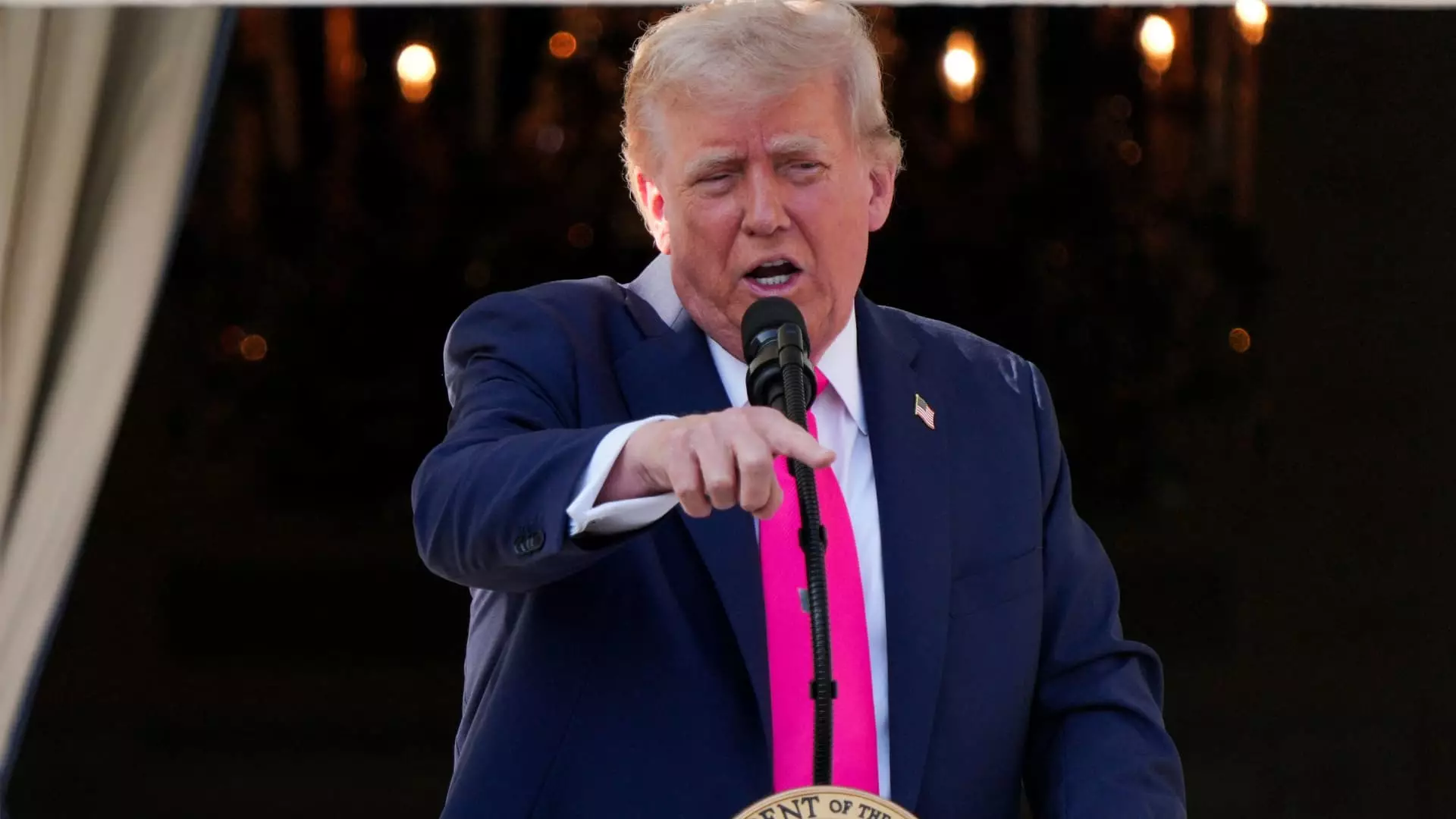President Donald Trump’s recent announcement of sending “take it or leave it” tariff proposals to a select group of nations reveals a reckless penchant for brinkmanship rather than thoughtful diplomacy. This saber-rattling approach, cloaked in the rhetoric of strength, undermines the very foundation of effective international trade relations. It is not merely a negotiation tactic; it’s a self-destructive gamble that risks igniting a global economic firestorm. By opting for a confrontational stance, Trump dismisses the complexity of global supply chains and the interconnectedness that supports economic stability, especially for middle-class Americans who stand to be harmed by retaliatory measures.
Instead of fostering constructive dialogue, this strategy relies on intimidation and maximalist demands. The fact that the tariff levels are being announced as “take it or leave it” offers exposes a fundamental misunderstanding—or perhaps a willful neglect—of the importance of diplomacy. Governments require dialogue, mutual understanding, and compromise to sustain healthy international markets. Trump’s approach appears to eschew these principles in favor of unilateral moves that threaten to destabilize markets and erode America’s credibility on the global stage.
Short-Term Wins at the Expense of Long-Term Stability
Backers of Trump’s tariff policies often argue that these aggressive measures serve as leverage to renegotiate better trade terms. However, history teaches us that such tactics rarely yield sustainable benefits. Instead, they often provoke retaliation, leading to a trade war that damages global economic growth and national interests alike. The threats of tariffs reaching up to 70% are particularly alarming, signaling a willingness to embrace economic chaos simply to score political points or satisfy protectionist ambitions.
This approach is shortsighted. It ignores the complex web of dependencies in global trade, where everyone loses when conflict erupts. Small and medium-sized businesses, which form the backbone of the American economy, are especially vulnerable to sudden tariff hikes. Prices increase, supply chains become uncertain, and innovation is stifled. Moreover, the threat of escalating tariffs creates panic rather than strategic advantage, hurting American consumers and workers more than foreign competitors.
Missed Opportunities for Diplomatic Solutions
Despite initial promises of broader negotiations, Trump’s recent tone suggests a retreat into unilateral actions rather than collaborative agreements. The limited progress with Britain and Vietnam underscores how difficult and time-consuming these negotiations are—yet Trump’s approach seems designed to truncate the process for rapid political gains. This impatience is precisely what hampers genuine diplomacy. In the world of international trade, patience and persistence are more effective than bluster and ultimatums.
Crafting trade agreements requires nuanced understanding, mutual concessions, and ongoing dialogue—processes that Trump’s current strategy blatantly dismisses. While the administration claims these tariffs are “better” because they are “easier to send,” this simplistic calculus ignores the broader consequences of economic confrontation. Blanket tariffs and threats only deepen mistrust and reduce America’s influence. In a time when global cooperation is critical to addressing issues like climate change, health crises, and technological standards, Trump’s approach risks isolating the United States rather than strengthening its bargaining position.
The Illusion of Power in Economic Aggression
In reality, Trump’s heavy-handed tariff threats reveal a dangerous illusion: that economic wars can be waged like military conflicts, with quick victories. Yet, economic interdependence has made such conflicts hugely costly and destabilizing, regardless of who initiates them. The promise of “U.S. dominance” through tariffs is a misguided narrative that fails to acknowledge the resilience of the global economy—and the vulnerability of American consumers caught in the crossfire.
This approach feeds a national narrative of strength, but in practice, it exposes a fragile political strategy that prioritizes short-term appeasement over sustainable economic health. When tariffs escalate, the inevitable result is damage control, market volatility, and the loss of America’s reputation as a reliable trade partner. The real power lies in diplomacy and cooperation—not in imposing punitive measures that ultimately hurt America’s own economic interests.
President Trump’s tariff brinkmanship is a reckless and shortsighted approach to international trade policy. It prioritizes politically convenient showmanship over the nuanced realities of global economics. While the administration claims that tough tactics will secure better deals, the evidence suggests otherwise: they threaten to erode trust, provoke retaliation, and destabilize markets. As the world watches, the question remains whether Trump’s rigid stance will lead to lasting economic harm or if calmer, more strategic diplomacy can salvage what remains of U.S. credibility. If the goal truly is to serve the interests of everyday Americans, it’s time to abandon the gamble and embrace a approach grounded in cooperation and mutual benefit—rather than ultimatums and bluster.


Leave a Reply